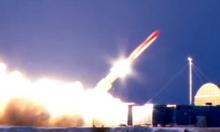Multilateral talks on Korean problem to be continued
The participants in the talks between six countries on coming out of the crisis over the North Korean nuclear program have agreed to continue the search for ways of settling the problem through dialog. A three-day meeting between high-ranking diplomats of North and South Korea, Russia, the USA, China and Japan ended in Beijing today.
According to reports from the Chinese capital, the sides decided to meet again within the next two months, although they did not fix the specific date and place of the new meeting.
There was no final document signed.
According to the report of the Kyodo Tsushin news agency, the South Korean delegation head, Lee Soo-hyuck, told the press that the participant in the talks "agreed to avoid actions that could complicate the situation".
At the same time, the Pyongyang-based Central Telegraph Agency of Korea reports, if the USA does not abandon its hostile approach to North Korea, it will thereby jeopardize prospects for future talks.
According to the South Korean news agency Renhap, in Beijing the North Korean delegation proposed the principle of "simultaneous measures" to be taken by both Pyongyang and Washington to come out of the current crisis. North Korea agrees to freeze the nuclear program on condition that the USA stops seeing this country as its enemy. Then, Pyongyang agrees to conducting inspections at its nuclear objects if the Americans resume the supplies of fuel oil for thermal electric power stations in the north of the Korean peninsula. North Korea may abandon its nuclear program if the USA supplies it with reactors for a new nuclear plant promised by the latter under the 1994 agreement.
The failure to meet the deadlines for the construction of the nuclear power station served as a pretext for the resumption of Pyongyang's nuclear program late in 2002. The situation was aggravated by the fact that the USA referred to North Korea as "the axis of evil".
Washington refused to conduct bilateral dialog with North Korea. In connection with this, a need has arisen to hold multilateral talks. However, as the Pyongyang press noted earlier, North Korea is afraid that Washington may use them to intensify international pressure on it and, in the long run, unleash a war, as was the case in Iraq.
Subscribe to Pravda.Ru Telegram channel, Facebook, RSS!





